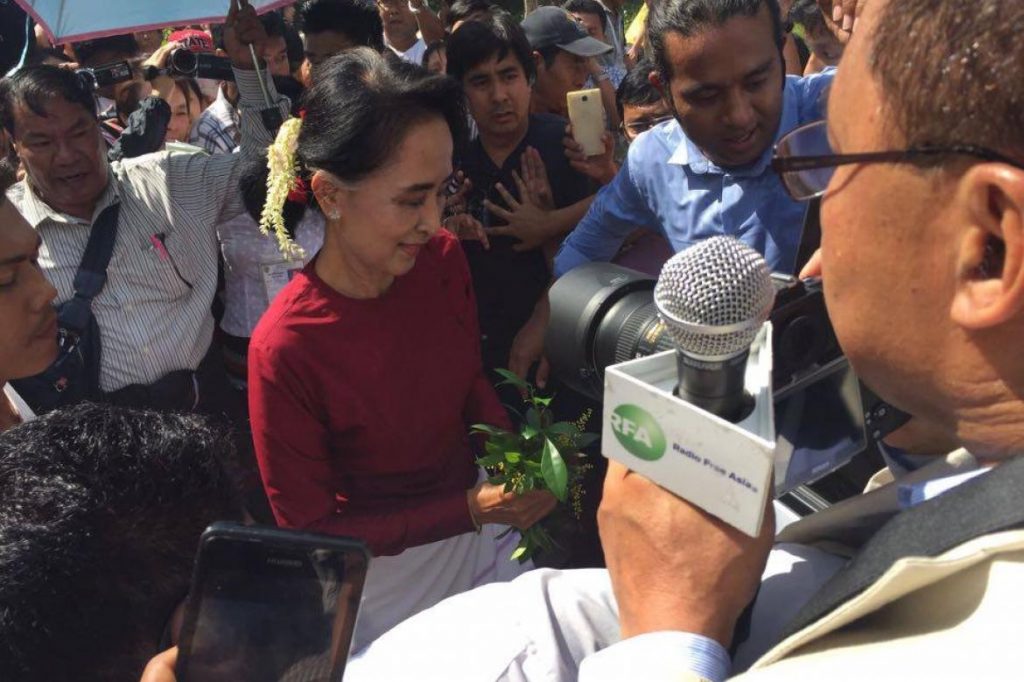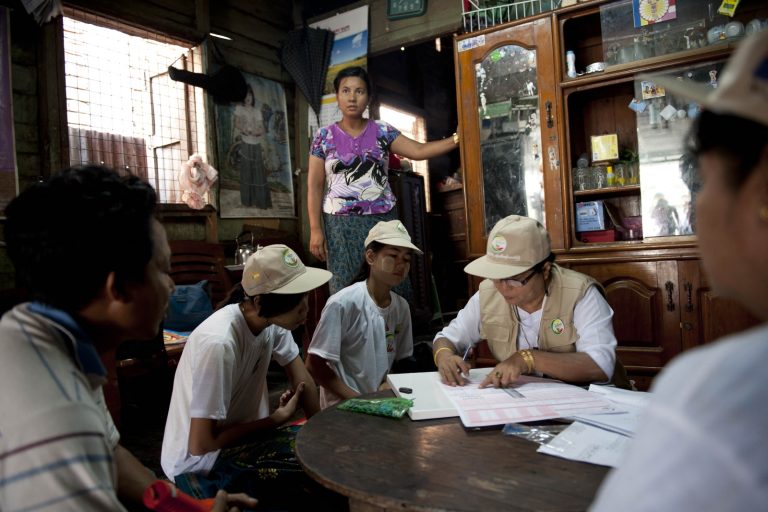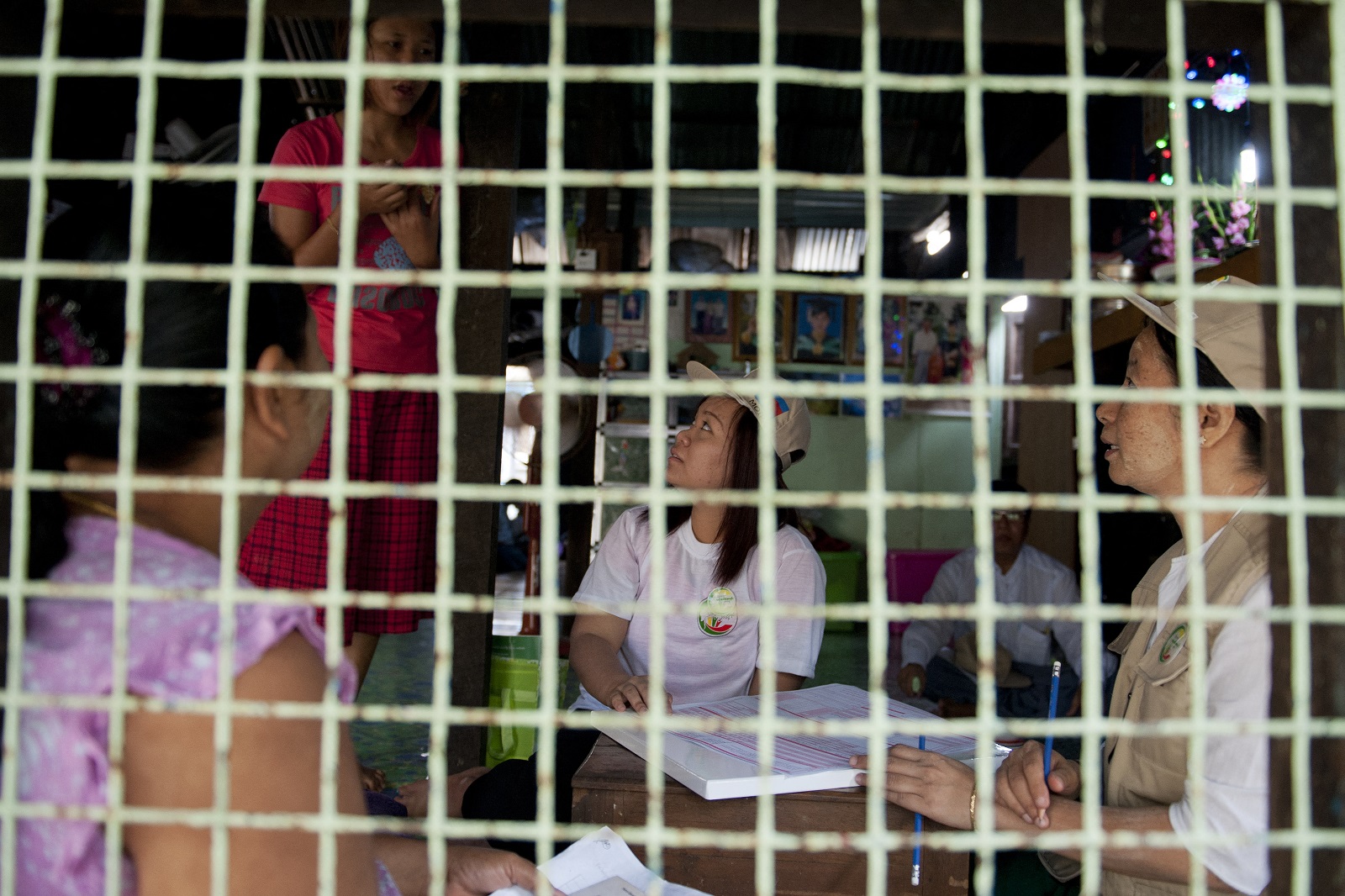YANGON — Opposition leader Daw Aung San Suu Kyi has voted in Myanmar’s general election, the first time she has cast a ballot in a national poll.
Wearing a red blouse and a traditional white htamein (skirt,) the leader of the National League for Democracy voted at a polling station in Yangon’s inner Bahan township. It was the first time she has voted in Myanmar since returning to the country in 1988 and becoming the central figure in the country’s democracy movement.
She was greeted by shouts of “Mother Suu, Mother Suu,” by hundreds of followers and journalists who had gathered at the Bahan polling station at a primary school.
After casting her ballot Daw Aung San Suu Kyi, 70, travelled in a convoy of vehicles to Kawmhu, an outer Yangon suburb, where she is standing again for a seat in the Lower House. At Kawmhu she visited two polling stations and lunched at a hospitality school she founded in the township, which voted her into parliament in the by-election of 2012.
Daw Aung San Suu Kyi was under house arrest for the 1990 general election in which the National League for Democracy won more than 80 per cent of the contested seats, but was blocked from assuming power thereafter by the ruling junta.
Support more independent journalism like this. Sign up to be a Frontier member.
The NLD leader was also under house arrest for the last general election of November 7, 2010, meaning she could not cast her ballot again.
She was released six days after the polls, which the NLD had boycotted, paving the way for the pro-military Union Solidarity and Development Party to win the vote and form a “nominally elected” civilian government, although packed with ex-military men.
President U Thein Sein opened a political dialogue with Daw Aung San Suu Kyi in 2011, leading to her rejoining the political process to contest the April 1, 2012, by-election in which the NLD won 43 of the 44 seats it contested.
Although she won her contested seat in Kawmhu in the 2012 by-election, Daw Aung San Suu Kyi did not vote in those polls either because there was no contest in her home township, Bahan.
In anticipation of the 2012 by-election Daw Aung San Suu Kyi registered herself as a Kawmhu resident with an ethnic Karen family living in the small township.
“I just came to see Daw Aung San Suu Kyi,” said Nyein Nyein Aye, 32, a clothes vendor in Kawmhu who was at a polling station Sunday. “My name wan’t on the voting list so I have no ballot,” she added.
The 2015 polls have been plagued by complaints of missing names on voting lists, ballot duplications, less-than-transparent advance voting procedures and muddles overseas votes.
The Nobel laureate is the daughter of Independence hero Aung San. She spent much of her childhood abroad and married the late British academic Michael Aris.
Under Myanmar’s 2008 Constitution the opposition leader is barred from becoming the next president, because her two sons are foreign nationals. Candidates with foreign relatives are barred from the post, a clause in the military-drafted charter seemingly designed to block Daw Aung San Suu Kyi from the presidency.
But she could still become Lower Speaker, if the NLD wins a clear majority of seats. At a press conference Thursday Daw Aung San Suu Kyi said if the NLD won big she could lead the country “above the president.”







